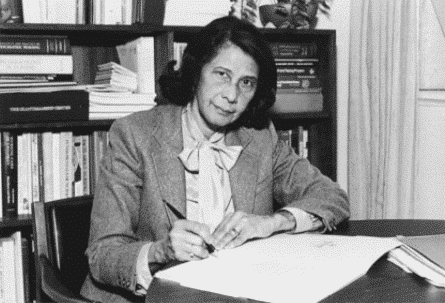
Image by Colin Behrens from Pixabay
Ignaz Semmelweis, a Hungarian physician, discovered the impact of germs on proper medical treatment and proposed that doctors scrub their hands before conducting any procedure. By implementing the then-innovative practice of antiseptic hand-washing, he successfully reduced the mortality rate from “childbed fever” in the maternity ward. For his advocacy of these antiseptic practices, he lost his hospital privileges. His opponents had him committed to a mental institution, where he was beaten severely by the guards. He died 14 days later, apparently due to his wounds. Today “scrubbing in” is a standard in every hospital in the world.
Curt Flood sued major league baseball [now we know the context] to get rid of the “reserve clause,” which basically ceded all of a player’s employment rights to a team owner. His teammates did not support him. While he lost in a lawsuit that went all the way to the Supreme Court, his efforts eventually paved the way for athletes to control their economic futures. Prior to his death, Congress passed HR21 (Curt Flood’s number), which provided antitrust protections for all athletes.
Virginia Apgar wanted to be a surgeon but was discouraged from doing so and became an anesthesiologist. When asked by a medical student how she evaluated the health of newborn babies, she created a scale now used by all hospitals. The APGAR scale was simple enough that it could be determined one minute after birth.
Eunice Foote was an amateur scientist at a time when women were not accepted in scientific disciplines. She was the first person to have discovered the warming effects of CO2 in the atmosphere. She was not able to speak at a scientific conference, and scientists who followed up on her work gave her little credit. It took 150 years for her to be recognized as the pioneer of our understanding on global warming.
What is the common theme of all of these stories? Certainly each of these individuals made lasting contributions to society. But their efforts often faced resistance and came at a high personal cost. They made a difference as individuals, often facing ridicule or disdain by those around them. They challenged the status quo by thinking there must be a better way. And they had the insight to offer improvements.
Those who make a difference are often reviled. Making a difference is often a singular act brought about by a person with passion for a better way and the creative spark to make breakthroughs in thinking. Just imagine what we could do as a society to encourage rather than discourage such breakthroughs. What might we do to foster the necessary personal traits such as passion, courage, conviction, commitment, creativity, and others that are needed to stand out and make a difference?
The ability to make a difference is not specific to race, gender, education, age, or any other personal trait. It takes a drive to break out of the status quo and make the world a better place. How might we best foster that drive?
* * *
“I am only me; but still I am one. I cannot do everything; but still I can do something; and because I cannot do everything, I will not refuse to do something I can do.” – Edward Everett Hale (author, historian, Unitarian minister)
This is part of our “Just Imagine” series of occasional posts, inviting you to join us in imagining positive possibilities for a citizen-centered democracy.


